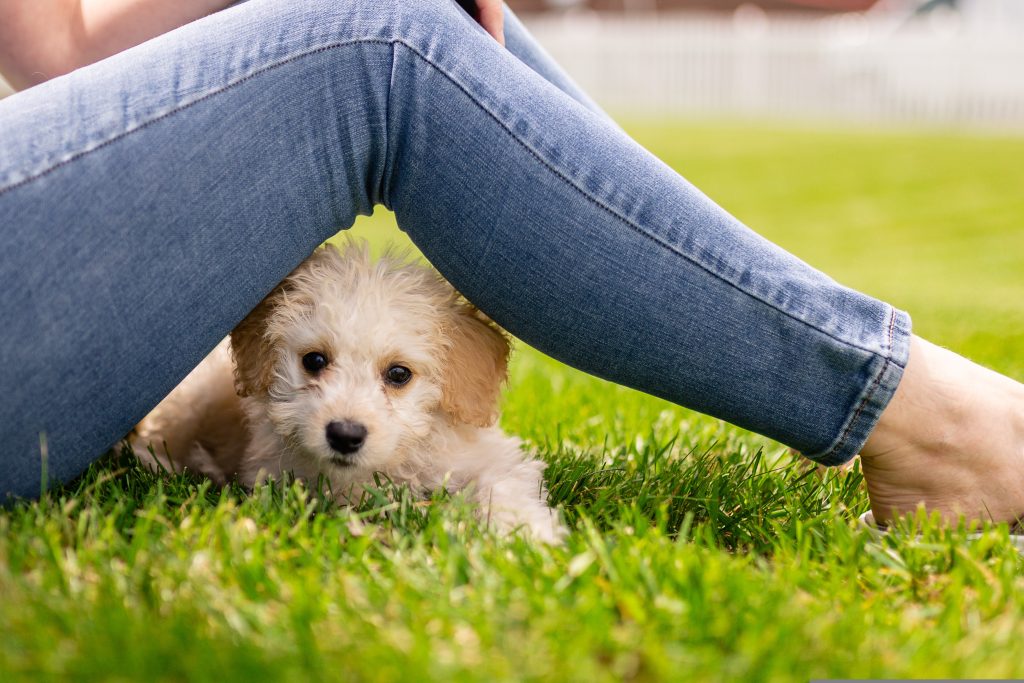The liver plays a vital role in maintaining overall health and well-being in our canine companions. This essential organ is responsible for a myriad of critical functions, including detoxification, protein synthesis, and digestion. However, dogs can develop liver disease, which can have severe consequences if left undetected or untreated. As responsible pet owners, it is crucial to understand the signs, causes, and preventive measures associated with this condition to ensure our furry friends live happy, healthy lives.
Symptoms commonly seen in little ones with Liver Disease
- Loss of appetite and weight loss: The liver plays a crucial role in nutrient metabolism, and when it’s not functioning correctly, dogs may lose their appetite. This can lead to significant weight loss over time, as they are not consuming enough calories and nutrients. Weight loss can be one of the first noticeable signs of liver disease.
- Vomiting and diarrhea: The liver is responsible for producing bile, which aids in digestion. When the liver is diseased, it may not produce enough bile, leading to digestive issues like vomiting and diarrhea. Additionally, toxins that should be filtered out by the liver can accumulate and cause gastrointestinal upset.
- Increased thirst and urination: The liver plays a role in regulating fluid balance in the body. When it’s not functioning properly, dogs may experience excessive thirst and frequent urination. This can be due to the buildup of toxins that need to be flushed out through the kidneys.
- Lethargy and weakness: Liver disease can lead to a buildup of toxins in the bloodstream, as well as a lack of essential nutrients and energy sources. This can result in general lethargy, weakness, and a lack of energy in affected dogs.
- Neurological symptoms: In advanced stages of liver disease, toxins can accumulate in the brain, leading to neurological symptoms such as disorientation, confusion, seizures, and even coma. This is a result of a condition called hepatic encephalopathy, which is a severe complication of liver failure.
Causes of Liver Disease
- Toxin exposure: The liver is responsible for filtering toxins from the body, but exposure to certain toxic substances can overwhelm and damage this vital organ. Common toxins that can cause liver injury include household chemicals, human medications, pesticides, and certain plants.
- Infectious diseases: Viral infections like canine adenovirus, canine herpesvirus, and leptospirosis can directly affect the liver cells, leading to inflammation and impaired liver function.
- Metabolic disorders: Conditions that disrupt the normal metabolic processes in the body can put a strain on the liver. For example, diabetes mellitus, hormonal imbalances , and copper storage diseases can all potentially lead to liver damage over time.
- Chronic inflammation: Autoimmune disorders, where the body’s immune system attacks its own cells, can cause chronic inflammation in the liver. Long-term exposure to certain medications, such as phenobarbital or corticosteroids, can also lead to liver inflammation and damage.
- Cancer: Primary liver tumors or cancers that have spread to the liver from other parts of the body can impair liver function and exacerbate the condition. Cancerous growths can disrupt the normal liver tissue and interfere with its ability to perform its various functions.
It’s essential to identify and address the underlying cause of liver disease to provide appropriate treatment and management. In some cases, the cause may be reversible, while in others, the focus may be on managing the symptoms and slowing the progression of the disease.
Preventive Measures for Liver Health
While liver disease can be a serious concern, there are several preventive measures that pet owners can take to safeguard their dog’s liver health:
- Regular veterinary check-ups: Routine wellness exams and blood work can help detect liver issues early, when they are more treatable and manageable.
- Proper nutrition: Feeding a balanced, high-quality diet can support liver health and prevent obesity, which can strain the liver and exacerbate existing conditions.
- Avoid toxin exposure: Keeping household chemicals, human medications, and potentially toxic plants out of your dog’s reach can prevent accidental ingestion and subsequent liver damage.
- Vaccination: Ensuring your dog is up-to-date on vaccinations can help prevent infectious diseases that may affect the liver, such as leptospirosis and canine hepatitis.
- Flea and tick prevention: Some tick-borne diseases, like Lyme disease, can contribute to liver problems in dogs, making preventive measures against these pests crucial.
- Weight management: Maintaining a healthy weight can reduce the risk of obesity-related liver issues and alleviate strain on the organ.
If you notice any symptoms of liver disease in your beloved canine companion, it is imperative to seek veterinary attention promptly. Early diagnosis and treatment can significantly improve the prognosis and quality of life for your furry friend. By being proactive and implementing preventive measures, you can help safeguard your dog’s liver health and overall well-being, ensuring many happy years together.




 On demand visits for urgent issues 24/7
On demand visits for urgent issues 24/7 








